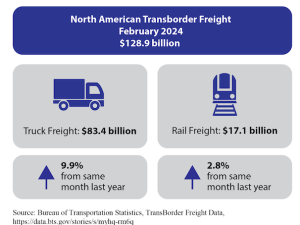The US House of Representatives and the US Senate approved H.R. 3, the six-year highway and transit reauthorization legislation. H.R. 3 will then be sent to the President for his signature.
"We are pleased with Representative Brian Baird's efforts to make the federal government a partner in this legislation by providing resources to help us take this important step forward," said Port Commissioner Steve Pottle, who met with Congressional delegates in Washington DC earlier this year. Representative Adam Smith strongly supported Representative Baird's efforts, as did Washington Senators Patty Murray and Maria Cantwell. The Congressional Districts of Representative Baird and Representative Smith include the district of the Port of Olympia. Representative Baird sits on the House Transportation and Infrastructure Committee, which was instrumental in drafting the legislation that includes the Port project.
The three-phase project, at a total cost of $2.3 million, is designed to expand the Port's capacity to handle greater volumes of cargo by shifting emphasis from trucking to rail. The new funding will be used specifically to add loading and storage track, eliminating an operational bottleneck. It will follow construction of the first phase of the project, currently under way, which adds and extends dock-side track, allowing the direct discharge of cargo from ships to rail cars. The third phase, which is still under study, would facilitate loading rail cars onto barges for "short sea shipping."
"This is our first attempt to secure funding through Federal Legislation and a prudent strategy for the Port to partner on capital projects, thereby reducing the share of funding from local property taxes," said Pottle. "The project is critical to meet the current and future needs of our freight customers and our community and will add family wage jobs to Thurston County, continue diversification of our marine terminal business and help us grow in a safe and efficient manner. "
Reorienting the Port's operations to handle more rail cargo will more than double the Port's cargo handling capacity and have a number of positive regional economic benefits. Conservative estimates indicate that business activities resulting from the increased freight volume processed through the Port will create over 100 new full-time, family wage jobs. In addition, it is estimated that about 5,600 truck trips annually will be shifted from road to rail transit, reducing highway traffic congestion and improving air quality.







